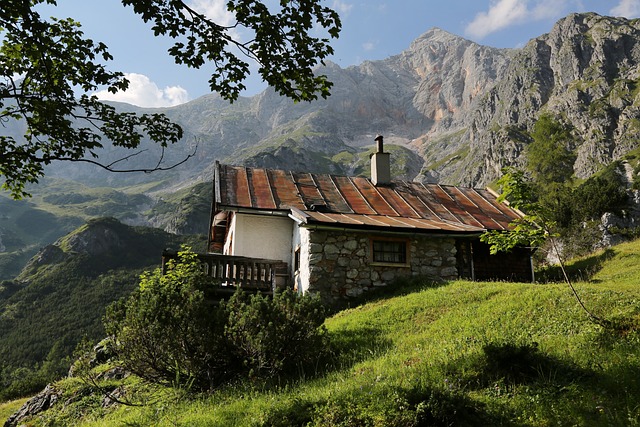Retirement in Switzerland: What You Need to Know

Switzerland is often regarded as one of the best places in the world to retire, thanks to its high standard of living, excellent healthcare system, and breathtaking natural beauty. However, retiring in Switzerland requires careful planning, as the country has a unique pension system, a high cost of living, and specific residency requirements. Whether you are a Swiss citizen or an expatriate considering Switzerland as your retirement destination, this guide will provide you with essential information to help you navigate the process.
The Swiss Pension System: A Three-Pillar Model
Switzerland’s retirement system is based on a three-pillar model, which ensures financial security for retirees. Understanding these pillars is crucial for planning your retirement in Switzerland.
1. First Pillar: State Pension (AHV/AVS)
- Purpose: The first pillar provides a basic income to cover essential living expenses.
- Eligibility: All residents, including expatriates who have worked in Switzerland, are entitled to the state pension.
- Contributions: Employees and employers each contribute 5.3% of the employee’s salary, up to a maximum income threshold.
- Benefits: The amount you receive depends on your average income and the number of years you have contributed. As of 2023, the maximum monthly pension is approximately CHF 2,450 for individuals and CHF 3,675 for married couples.
2. Second Pillar: Occupational Pension (BVG/LPP)
- Purpose: The second pillar supplements the state pension and is designed to maintain your pre-retirement standard of living.
- Eligibility: Employees earning above a certain threshold (CHF 21,510 per year as of 2023) are automatically enrolled in an occupational pension plan.
- Contributions: Both employees and employers contribute to the plan, with rates varying depending on age and salary.
- Benefits: The pension amount depends on your salary, years of service, and the performance of the pension fund.
3. Third Pillar: Private Pension (3a and 3b)
- Purpose: The third pillar allows individuals to save additional funds for retirement through private savings and investments.
- Types:
- Pillar 3a: Tax-advantaged savings accounts or insurance policies designed for retirement. Contributions are tax-deductible, up to an annual limit (CHF 7,056 for employees with an occupational pension as of 2023).
- Pillar 3b: Flexible private savings and investments without tax benefits.
- Benefits: The third pillar provides additional financial security and flexibility in retirement planning.
Cost of Living in Retirement
Switzerland is known for its high cost of living, which is an important consideration for retirees. Here are some key expenses to keep in mind:
- Housing: Whether you rent or buy, housing is likely to be your largest expense. Renting a two-bedroom apartment in a city like Zurich or Geneva can cost between CHF 2,000 and CHF 4,000 per month.
- Healthcare: Switzerland has an excellent healthcare system, but it is also expensive. Health insurance is mandatory, and premiums can range from CHF 300 to CHF 700 per month, depending on your age and coverage.
- Daily Expenses: Groceries, dining out, and transportation are also costly. A monthly budget for daily expenses can range from CHF 1,000 to CHF 2,000, depending on your lifestyle.
Residency Requirements for Retirees
If you are an expatriate planning to retire in Switzerland, you will need to meet specific residency requirements:
- Retirement Visa: Switzerland does not have a specific retirement visa. However, non-EU/EFTA citizens can apply for a residence permit if they can prove financial self-sufficiency and have adequate health insurance.
- Financial Requirements: You must demonstrate that you have sufficient financial resources to support yourself without working. This typically means having a stable income or savings.
- Health Insurance: As mentioned earlier, health insurance is mandatory for all residents, including retirees.
Healthcare in Retirement
Switzerland’s healthcare system is one of the best in the world, offering high-quality medical care and services. Here are some key points to consider:
- Mandatory Health Insurance: All residents, including retirees, must have basic health insurance (KVG/LAMal). Premiums vary by canton and provider.
- Supplementary Insurance: Many retirees opt for supplementary insurance to cover additional services such as private hospital rooms, dental care, and alternative medicine.
- Access to Care: Switzerland has a dense network of hospitals, clinics, and specialists, ensuring that retirees have access to excellent medical care.
Taxation in Retirement
Switzerland has a favorable tax system for retirees, but it is important to understand how your income will be taxed:
- Pension Income: State and occupational pensions are taxable, but they often benefit from lower tax rates compared to regular income.
- Wealth Tax: Switzerland imposes a wealth tax on assets, including real estate, savings, and investments. Rates vary by canton.
- Double Taxation Agreements: Switzerland has agreements with many countries to avoid double taxation, which can be beneficial for expatriate retirees.
Lifestyle and Activities for Retirees
Switzerland offers an exceptional quality of life for retirees, with a wide range of activities and amenities:
- Outdoor Activities: The country’s stunning landscapes provide endless opportunities for hiking, skiing, cycling, and other outdoor activities.
- Cultural Events: Switzerland has a rich cultural scene, with museums, theaters, and festivals throughout the year.
- Community and Social Life: Many towns and cities have active expatriate communities and social clubs, making it easy to meet new people and stay engaged.
Tips for Planning Your Retirement in Switzerland
- Start Early: Begin planning your retirement as early as possible to ensure you have sufficient savings and understand the requirements.
- Consult Experts: Seek advice from financial advisors, tax experts, and legal professionals to navigate the complexities of the Swiss system.
- Learn the Language: While many Swiss people speak English, learning one of the national languages (German, French, or Italian) can enhance your experience and integration.
- Visit Before Moving: Spend time in Switzerland to familiarize yourself with the culture, lifestyle, and housing options before making a permanent move.



